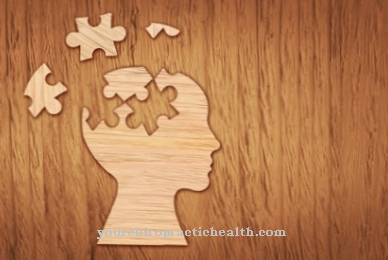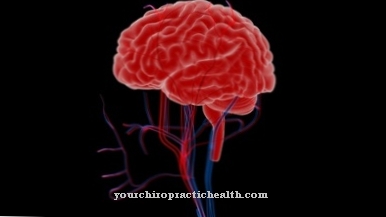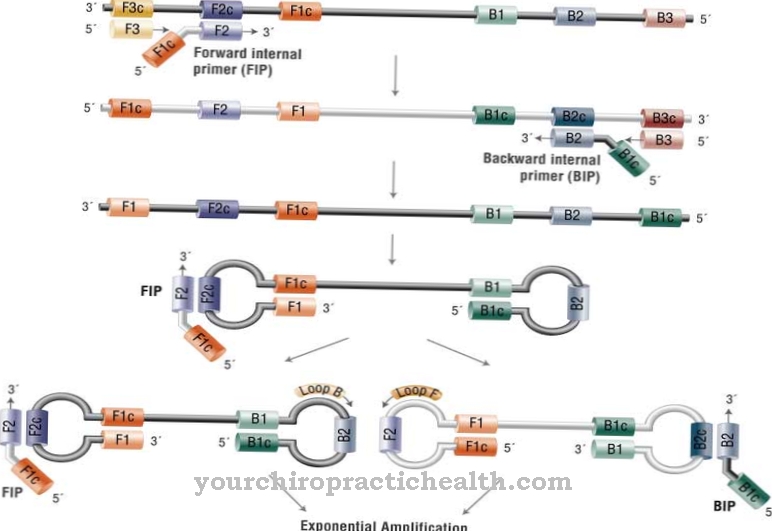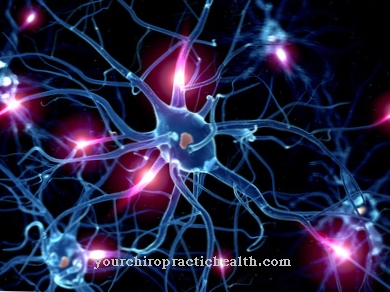excitement is a reaction of the body and the psyche to impending or unexpected events, but can also be caused by a particularly pronounced psychological excitability of the person concerned.
In a positive sense, excitement serves to be able to focus on an important matter without being distracted.
In a negative sense, too much excitement leads to uncontrolled thinking and acting and - if it lasts for a long time - it can also have an unfavorable influence on the nerves, the gastrointestinal tract, the skin or the cardiovascular system.
What's the fuss?

Excitement is a state of mind that can be triggered by external influences such as an accident or an appearance ("stage fright"), but also by internal disposition such as increased restlessness or a tendency to brood.
The excited state, which can gradually or suddenly develop out of emotional equilibrium, is characterized by psychological and physical events that come about through the increased release of the stress hormone adrenaline.
Internal and external restlessness, palpitations and racing heart, an increase in breathing rate, sweating, tremors and increased muscular tension are characteristic.
An excited person may no longer be able to precisely control what they are saying and doing. Typical examples are getting tangled up when speaking or acting clumsily when handling objects. It is usually difficult for the affected person to sit or stand still.
Subconsciously one tries to give in to the primal reflex of running away with constant running around or waving arm movements. A person's excitement can also often be easily recognized by rapid eye movements.
Function & task
Similar to fear, excitement is normal to a certain extent and helps people concentrate on the essentials and avoid or eliminate dangers.
These abilities are triggered by a whole bunch of physical and psychological reactions that are triggered by the increased release of adrenaline. The adrenaline alarms the body and focuses the mind on the task at hand.
If the excitement does not exceed a healthy level, it means that the mind can focus entirely on the matter at hand. The consequence of this is that, for example, a speech or an exam situation can be mastered without distraction and with full concentration.
The additional energy for important motor reactions is also made available through the release of the stress hormone adrenaline, which is formed in the adrenal glands, into the bloodstream.
The necessary oxygen is brought into the muscles via the increased heartbeat and increased breathing activity. The bronchial tubes and the pupils of a person who is under tension also widen and put the body and mind in a state of maximum alertness, as is needed for particularly stressful situations.
The adrenaline also stimulates the cells of the liver to release more glucose and additionally boost performance via an increased blood sugar level. The activity of the stomach and intestines, however, is kept to a minimum. This serves to provide all physical resources for important areas such as the brain and muscles. This is also visible in the pale skin, which is also deprived of the blood that is not absolutely needed.
Many people feel cold sweat on their skin when they are excited. In the past, this served to be less accessible for enemies, today the liquid has a cooling effect in view of the overheated system of the body due to the acute state of tension.
You can find your medication here
➔ Medicines to calm down and strengthen nervesIllnesses & ailments
The state of excitement on specific occasions, for example in the run-up to an important exam, is normal and is generally very well tolerated by the body. Negative effects are not to be expected in a healthy person.
It is different when the body and the psyche are confronted with this exceptional state over a longer period of time. In the physical area, the constantly high adrenaline level can have an unpleasant influence on a wide variety of organ systems.
A serious consequence is hypertension. This is an increased blood pressure, which in the long term can damage the blood vessels and the heart. In addition to constant restlessness, the patient may notice headaches, sweating and an irregular heartbeat that can manifest as tripping or racing.
These symptoms, and above all the angina pectoris felt as chest tightness, should be interpreted both as a warning signal for a quick visit to the doctor and in relation to an urgent change in lifestyle, which should involve significantly less stress and excitement.
Organs other than the heart and circulation can also be affected by too much or continuous excitement. In the digestive tract, constant excitement can lead to psychosomatic symptoms such as inflammation of the gastric mucosa or irritable bowel syndrome. It is also typical that excited people have to go to the toilet: In this way, the body wants to separate itself from all things that are currently unimportant in order to cope with the exceptional situation without restriction.
The permanent stress can also affect the skin in the form of nervous reactions such as itching. If the excitement becomes noticeable with the characteristic red spots on the face or cleavage, this can even worsen the condition of the person concerned.
A broad field is the effect of frequent and violent excitement on the psychological state of the person concerned. Continuous high tension often causes insomnia in the patient and in this way reduces the natural time for physical and psychological regeneration.
Over time, the result is a reduced resilience in everyday professional and private life. This can lead to constant irritability, which can be reflected not only in the quality of social contacts, but also in sexual aversion. Anxiety disorders and depression can be at the end of the chain and can therefore be traced back to constant excitement.



























